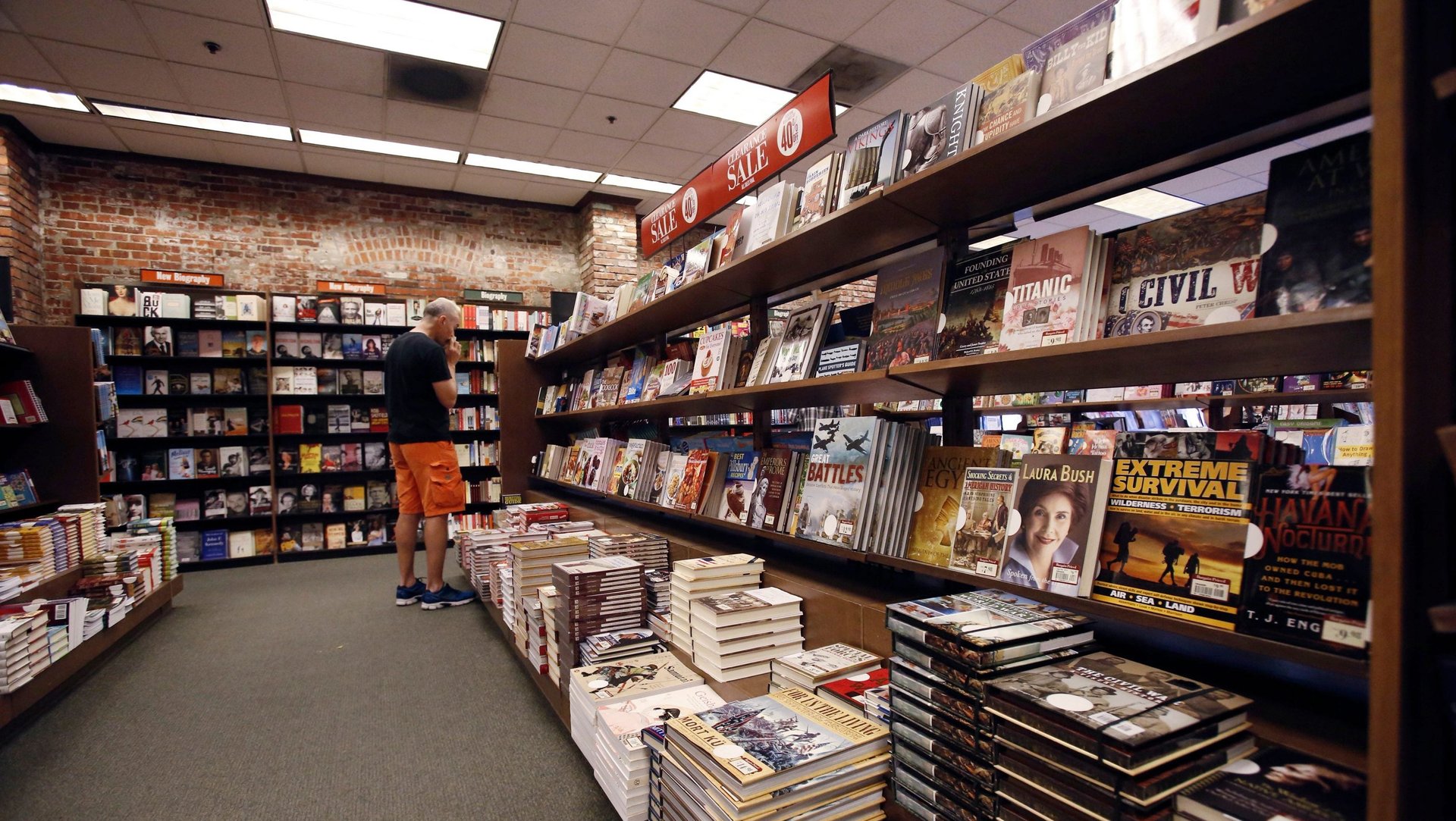Support your local corporate behemoth bookstore
Print-book devotees love the romance of independent bookstores, with their clever shelf labels, twee greeting cards, and mouthy tote bags. But the soulless chain bookstore deserves your dollars, too.


Print-book devotees love the romance of independent bookstores, with their clever shelf labels, twee greeting cards, and mouthy tote bags. But the soulless chain bookstore deserves your dollars, too.
In an op-ed for The New York Times published this past Sunday (May 6), David Leonhardt argued that Amazon is a threat to the health of the book business, even though it looks to be a benevolent retailer with extremely low prices. One way to slow the growth of the looks-a-lot-like-a-monopoly tech company, he argues, is to save Barnes & Noble.
Barnes & Noble stores may seem weirdly uniform across its US stores, with little customization compared to its local independent counterparts. And the chain is having a tough time. It reportedly lost $1 billion on its failed e-reader; it’s been laying off full-time employees; it’s struggling to reinvent its physical stores; and it’s on its fourth CEO since 2013, the latest of which said he’d save the company by pivoting to books.
But the demise of Barnes & Noble, which has 630 locations in the US, would be bad news for the publishing industry. If the chain were to disappear, new indie bookstores and Amazon itself, which has opened 15 physical bookstores since 2015 and has three more on the way, would fill some of the gap. Many buyers would go online to Amazon, as they did after the close of Borders, and some to other physical stores, but according to Mike Shatzkin, cofounder of the Idea Logical Company, there would be a segment of current book buyers who would simply stop buying.
Narrative-driven (or, as Shatzkin puts it, “readerly”) books would be unlikely to suffer. Those you can buy easily on Amazon, and it doesn’t matter so much if you get the latest novel at 6pm today or 2pm in two days. But the lack of a physical bookstore could mean a decrease in purchases of books people buy as gifts, like heavily illustrated books and children’s books, which people need right away and for which they like to browse in person before buying.
And it’s possible some bookstores would be lost to another book-buying experience all together: Some of Amazon’s retail efforts, Shatzkin believes, will not go toward new bookstores, but to shelf space inside Whole Foods. While genre fiction in supermarkets is nothing new, we could see books highly tailored to location based on Amazon’s vast amount of user data, cutting out the need for store browsing in lieu of algorithmically served books.
Correction: A previous version of this story said Amazon had opened 17 physical bookstores.